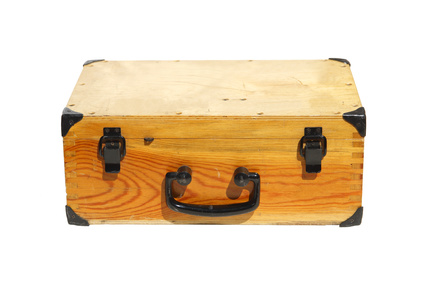You know how it is: after a string of sleepless nights you run to catch the train to slumber, but it takes off without you. Maybe you were caught up watching TV or surfing the ‘net. Maybe you were caught up in your own thoughts–about stress at work, the mounting debt, the kid who promised to be home at eleven and now it’s after midnight. Whatever the reason there you are, weighed down by your baggage, staring down a long empty track of sleeplessness.
So you hoof it, straining to catch that train, painfully aware of every pebble and blade of grass underfoot; but no matter how hard you labor, the farther off it gets.
Welcome to insomnia.
Whether you struggle with it nightly or wrestle with it in spells, insomnia is a challenge not for the faint of heart. That long trudge through an even longer night causes muscle tension, increased stress hormones, impaired thinking, and a foul mood.
But there is a way to get your sleep back on track. All you need is a ticket. And I’m here to tell you how to get it.
Why me? Because I’m an expert insomniac. I’ve missed the train so many times I’ve started to blame the platform. I’ve read the books. I’ve taken the classes. And I’ve found a few techniques that got me back on the slumber train.
Here are three tips to help you hop on board, too.
According to Rachel Manber, Director of the Stanford Sleep Health and Insomnia Program, you need three things for a good night’s sleep: a strong sleep drive, a correctly timed circadian clock, and a calm mind.
Build a strong sleep drive
The sleep drive sends sleepiness signals to the brain. When the drive is strong, we spend more time in deep sleep. When the drive is weak, we toss and turn in bed, feeling tired but wired.
How do we make it strong?
First, set a regular bedtime and rising time and stick with it, no matter how little you slept the night before–even on weekends. If six a.m. is your wake-up call on work days, then it’s up-and-at-‘em at six a.m on your days off. When the alarm buzzes, get out of bed. Don’t linger. Don’t fall back asleep or lie there mentally writing up your to-do list for the day.
Why is it so important to get out of bed? Because when you get up and start moving, you’re setting the sleep drive. And the longer you stay awake, the stronger the drive to sleep.
But it’s Sunday, you say, what’s the harm in sleeping in?
Well bucko, when you oversleep, you’ve essentially flown across country. You’ve developed jet-lag. You’ve taken the pressure off the sleep drive, and you’ve messed up your circadian clock. To keep the pressure on so you’re drowsy at bed-time, you’ve got to get up, stay up, and get moving.
Set your circadian clock
The circadian clock sends “wake up” signals to the brain in the morning, and “go to sleep” messages at night. When it’s in sync, you’re alert during the day, and sleepy at night.
To regulate your circadian rhythm, you need a little hormone called melatonin. Our bodies manufacture it naturally, secreted by the pineal gland in the brain. But we often muck up our melatonin levels by staying up late under bright lights, or oversleeping in the morning.
When the sun starts to rise, our melatonin levels drop, making us more alert. To help it drop, open the shades and look into the sun, or take a walk outdoors. If it’s dark outside when you rise, then use a light therapy box to mimic the sun. At the very least, turn on the overhead lights as you get ready for your day. You can buy inexpensive full spectrum bulbs at places like Target that replicate daylight.
At night, you want your melatonin levels to rise. So turn off all electronic devices (computer, iPhone, TV), dim the lights, and engage in a pre-sleep ritual for 30 minutes. Brush your teeth. Read a book that’s not too stimulating. Have a conversation with your spouse; one of those conversations where you normally mumble, “Huh? What did you say?”
Then turn out the lights.
Our circadian clock is also regulated by our body temperature. You want to raise your temperature in the morning—get up and get moving—and lower it to help you sleep deeply through the night. Take a shower or bath two hours before bedtime to allow your body to cool down, and crack open a window when you go to bed if it’s safe to do so.
Calm your mind
A calm mind allows you to drift off to sleep, and fall back asleep when you wake during the night. Everybody wakes several times during the night. A good sleeper will turn over and go back to dreamland. A bad sleeper will lie awake, ruminating on o’possums.
There are three ways to achieve a calm mental state: deep breathing, relaxation exercises, and meditation or prayer.
After your pre-sleep ritual, turn out the lights, lie on your back, and breathe deeply into your belly. There are many different methods of deep breathing, or pranayama, as it’s called in Hindu yoga. I find alternate nostril breathing to be very calming. Here’s a short video on how to do it.
Or just breathe through your nose, filling your belly with air, for the count of four, then exhale through the mouth for the count of six. Do this ten times. The long exhale taps into your parasympathetic nervous system, lowering your blood pressure and giving you calm vibes.
You can also try an “ocean breath,” where you breathe in through the nose while constricting your throat slightly, and breathe out through the nose with that same constricting sound. It’s almost, but not quite, a snore. Do ten.
After your deep breathing, relax in your sleep position and let go of thoughts. This is where a good meditation practice comes into play. If your muscles are tense, breathe into the tight places and breathe out the tension. Practicing a progressive muscle relaxation technique—or any body relaxation exercise—during the day, will help you conk out at night.
The stress we accumulate during our waking hours affects our ability to sleep. So take regular breaks at work: stretch, walk around, breathe deep, bring your awareness to the moment, and remind yourself that whatever stress you’re carrying, most likely won’t matter ten years from now.
Besides, you don’t need that extra baggage. You have a train to catch.



